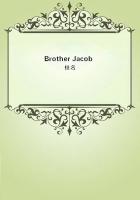It is with the eye of the mind as with the eye of the body. Just as a large landscape seems smaller than the window which looks out on it, and we only learn by habit and experience to judge of the relative magnitude of objects by transporting ourselves in imagination to a different station, from whence we can judge of their real proportions, so it is necessary for the mind to change its position before we can ever regard our own selfish interests in their due relation to the interests of others. We have to view our interests and another's, "neither from our own place nor from his, neither with our own eyes nor yet with his, but from the place and with the eyes of a third person, who has no particular connexion with either, and who judges with impartiality between us." By habit and experience we come to do this so easily, that the mental process is scarcely perceptible to us, by Which we correct the natural inequality of our sentiments. We learn both the moral lesson, and the lesson in vision, so thoroughly, as no longer to be sensible that it has been a lesson at all.
"It is reason, principle, conscience, the inhabitant of the breast, the man within, the great judge and arbiter of our conduct," who alone can correct the natural misrepresentations of self-love, who shows us the propriety of generosity and the deformity of injustice, the propriety of resigning our own greatest interests for the yet greater interests of others, and the deformity of doing the smallest injury to another in order to obtain the greatest benefit to ourselves. But for this correction of self-love by conscience, the destruction of the empire of China by an earthquake wou1d disturb a man's sleep less than the loss of his own little finger, and to prevent so paltry a misfortune to himself he would be willing to sacrifice the lives of a hundred millions of his brethren, pro- vided he had never seen them. It is not the love of our neighbour, still less the love of mankind, which would ever prompt us to self-sacrifice. It is a stronger love, a more powerful affection, "the love of what is honourable and noble, of the grandeur, and dignity, and superiority of our own characters."The sense of duty in its various forms is the result of the commands of conscience, which thus exists within us as the reflection of external approbation. When the happiness or misery of others depends on our conduct, conscience, or "the man within," immediately calls to us that if we prefer our- selves to them, or the interest of one to the interest of many, we render ourselves the proper object of the contempt and resentment of our fellows.
The control of our passive feelings, of our natural preference for our own interests and our natural indifference to those of others, can only be acquired by a regard to the sentiments of the real or supposed spectator of our conduct. This is the discipline ordained by nature for the acquisition of the virtue of self-command as well as of all other virtues. The whole of life is an education in the acquisition of self-command. A child, as soon as it mixes with its equals at school, wishes naturally to gain their favour and avoid their contempt; and it is taught by a regard to its own safety to moderate its anger and other passions to the degree with which its play-fellows are likely to be pleased. From that time forth, the exercise of discipline over its feelings becomes the practice of its life.
Only the man who has been thoroughly bred in the great school of self-command, the bustle and business of the world, maintains perfect control over his passive feelings upon all occasions. He has never dared to forget for one moment the judgment likely to be passed by the impartial spectator upon his sentiments and conduct, nor suffered the man within the breast to be absent for one moment from his attention. With the eyes of this great inmate he has been accustomed to regard all that relates to himself. From his having been under the constant necessity of moulding, or trying to mould, his conduct and feelings in accordance with those of this spectator, the habit has become perfectly familiar to him; and he almost identifies himself with, he almost becomes himself that impartial spectator; he hardly ever feels but as that great arbiter of his conduct directs.
But with most men conscience, which is founded on the approbation of an imaginary spectator, requires often to be aroused by contact with a real one. "The man within the breast, the abstract and ideal spectator of our sentiments and conduct, requires often to be awakened and put in mind of his duty by the presence of the real spectator." In other words, conscience requires to be kept fresh by contact with the world; solitude leads us to overrate the good actions we may have done or the injuries we may have suffered, and causes us to be too much dejected in adversity as well as too much elated in prosperity.
Nevertheless if the actual spectator is not impartial like the distant one of imagination or reality, the rectitude of our judgments concerning our own conduct is liable to be much perverted; and this fact accounts for many anomalies of our moral sentiments.
Take, for instance, the conduct of two different nations to one another.
Neutral nations, the only indifferent and impartial spectators of their conduct, are so far off as to be almost out of sight. The citizen of either nation pays little regard to the sentiments of foreign countries, but only seeks to obtain the approbation of his own fellow-citizens, which he can never do better than by enraging and offending the enemies they have in common. Thus the partial spectator is at hand, the impartial one at a distance.
Hence the total disregard in the life of nations of the rules of morality in force in private life. "In war and negotiation the laws of justice are very seldom observed. Truth and fair dealing are almost totally disregarded.















